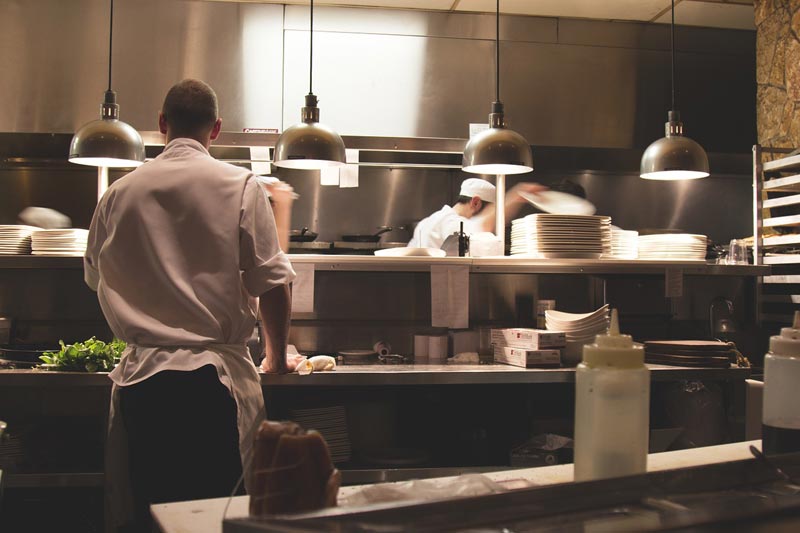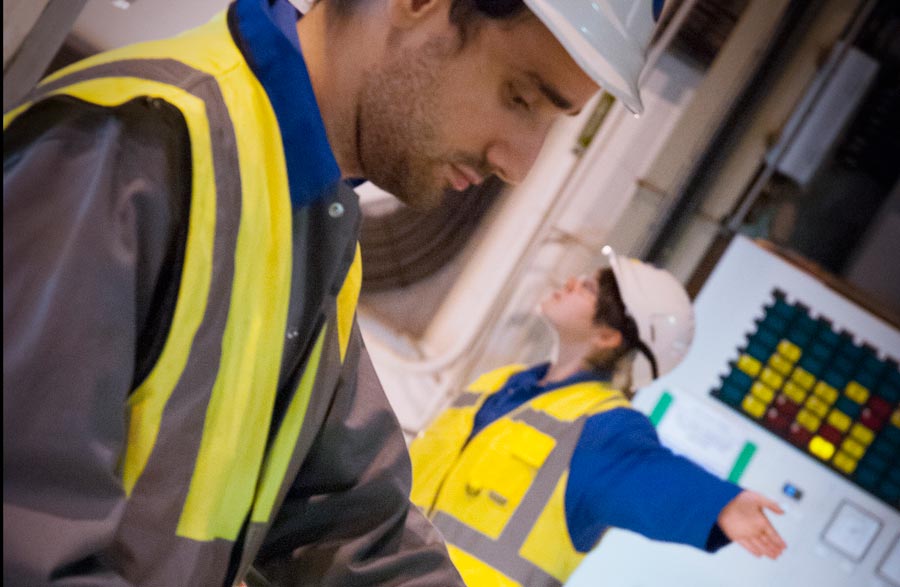
Your New Career In… Catering
Acquiring catering qualifications (either as kitchen staff or ‘front of house’) could give you a start in a diverse industry sector.
The UK’s catering services industry has once again started to show growth, having been knocked by a downturn in consumer confidence during the recent recession. According to industry research website: www.ibisworld.co.uk the sector is in pretty good health and reports that it’s worth £1bn per annum, employing around 30,000 people in over 7,000 businesses in the UK with annual growth between 2011 and 2016 measured at 2.3%.
The fact is that corporations, public-sector bodies and consumers are all more likely to organise events with catering when confidence is high. A renewal in business and consumer confidence has begun to encourage more demand.
Where to start?
Hospitality and Catering – Level 1
Whether you want to work as a chef, kitchen assistant, housekeeper, waitress or hotel receptionist – and ultimately move on up the career ladder, the introductory Certificate in Hospitality is a good starting point.
The Certificate in Hospitality is for anyone new to hospitality work. You don’t even need a job or work placement to take these qualifications – but if you have one you can often learn on the job.
Level 1 will suit you if you’re just starting your first hospitality job since it is pitched at people looking for a good basic understanding of hospitality work, either to succeed in their first job or to move on to further study.
There are four qualifications to choose from at this level:
- Level 1 NVQ Certificate in Accommodation Services.
- Level 1 NVQ Certificate in Food and Beverage Service.
- Level 1 NVQ Certificate in Food Preparation and Cooking.
- Level 1 NVQ Certificate in Hospitality Services.
Depending on the qualification you choose, you complete between two and four mandatory units, including:
- Maintenance of a safe, hygienic and secure working environment.
- Working effectively as part of a hospitality team.
You also complete a number of optional units from a wide range depending on your area of specialism. After earning your certificate you can move on to a whole range of Level 2 qualifications, for example:
- Diploma in Professional Cookery.
- Diploma (NVQ) in Hospitality.
- Diploma in Professional Food and Beverage Service.
- Certificate in Professional Patisserie and Confectionary.
- Award in Barista Skills.
- Award in Professional Bartending (Cocktails).
More
www.cityandguilds.com
Chef
Chef is an abbreviation of the French phrase chef de cuisine, meaning ‘chief’ or ‘head’ of a kitchen. Although there are no strict entry requirements, it would be sensible to look at training and qualifications since it’s a competitive environment with seemingly every cook wanting to run the kitchen. If there are requirements they might simply be described as ‘passion’ (about food) and ‘energy’. Being a chef is hard work and the conditions, as in any service sector job, are likely to be pressurised, especially when you’re surrounded by people that want your job. The first thing to realise is that cooking for pleasure and cooking as a profession are entirely different. If, as they say, ‘you don’t like the heat, get out of the kitchen’.
In large kitchens chefs are expected to work as part of a team, and usually look after one food area, such as bread and pastries, or puddings. (The head chef runs the entire kitchen.) Tasks generally include food preparation but the chef also needs to keep an eye on making sure that food is served promptly as well as details that ensure consistent quality and portion size in line with budgets and stock control, not to mention hygiene and health and safety guidelines.
Unless you’ve managed to display exceptional talent, a new, inexperienced chef can expect to start as a kitchen assistant or trainee chef, also known as commis chef. At this level you would spend time in each area of the kitchen, learning a range of skills and how to use kitchen equipment as well as understanding how the kitchen operates. Promotion comes with experience, with the usual route being section chef (also known as station chef and chef de partie). From here you might become a sous chef, where you would be running the entire kitchen for the head chef when needed – and then, the top job.
The nature of the market means that early mornings and/or late nights are inevitable.
Starting out
A good starting point for the job is gaining relevant qualifications. These might include:
- Level 1 Diploma in Introduction to Professional Cookery.
- Level 2 Certificate in Hospitality and Catering Principles (Professional Cookery – Food Preparation and Cooking).
- Level 2 Certificate in Professional Patisserie and Confectionery.
- Level 2 Diploma in Professional Cookery.
Once working, your employer may encourage you to take further qualifications, such as:
- Level 3 (NVQ) Diploma in Professional Cookery.
- Level 3 Award in Supervising Food Safety in Catering.
- Level 3 Diploma in Advanced Professional Cookery.
- Level 3 Diploma in Professional Patisserie and Confectionery.
- Level 3 (NVQ) Diploma in Hospitality Supervision and Leadership.
Earnings
A Chef de Partie earns an average salary of £16,984 per annum, moving up to £20,113 as a sous chef, with head chefs earning an average annual salary of £24,811.
(Figures from: www.payscale.com)
Restaurant Manager
The role of restaurant manager is very similar to that of chef in that they are tasked with responsibilities involving customer service issues as well as those relating to ensuring that the food coming out of the kitchen is the best it can be. They will also deal with any staffing issues and other details that contribute to the smooth running of the operation as well as optimum profitability.
Depending on the business, the role of restaurant manager will include duties that overlap those of the chef, such as, the overseeing of food preparation, checking the size of the servings, the organising of stock, ordering food and drink supplies, maintaining equipment, adhering to health and safety precautions, making sure the kitchen and dining areas are cleaned according to certain standards, keeping records of these practices for health inspectors, and dealing with other ad hoc issues as required – which can range from important details like interviewing, hiring and supervising the training of new staff members, as well as organising shifts, through to more mundane tasks such as ordering flowers for the tables.
If there is one overriding area of expertise that restaurant managers must have, it’s in customer service. The aim of any catering service or establishment is customer satisfaction, which ultimately creates repeat business.
The watchwords for service then are simple but important. Customers expect prompt, friendly and professional service. Of course, the best laid plans don’t always materialize and so it is also the role of the restaurant manager to be ‘fixer-in-chief’ should anything go wrong or where there is a dispute between staff and customers. This can often require tact, diplomacy and a great deal of patience.
Owners of restaurants or catering businesses very often take on the role of manager themselves which will also incorporate hands-on activities such as designing menus – again to fit in with budgets and contribute to profitability targets – and in larger businesses this might extend to planning marketing campaigns etc.
Naturally, Service-leavers will recognise the parallels, such as they are, with the Military chain of command. Catering is a tough and competitive industry but the skills acquired in the Forces transfer very neatly.
Entry requirements
There are no strict entry qualifications required but a good standard of education and as much relevant work experience as you can muster will help enormously. New entrants into the sector can work themselves up through the waiting staff team and may choose to study towards qualifications that will make them more attractive as candidates such as:
- Level 3 Award in the Principles of Supervising Customer Service Performance in Hospitality, Leisure, Travel and Tourism.
- Level 3 (NVQ) Diploma in Hospitality Supervision & Leadership.
Earnings
A restaurant manager earns £14,966 – £31,842 per annum with an average of £22,500.
(Figures from: www.payscale.com)



